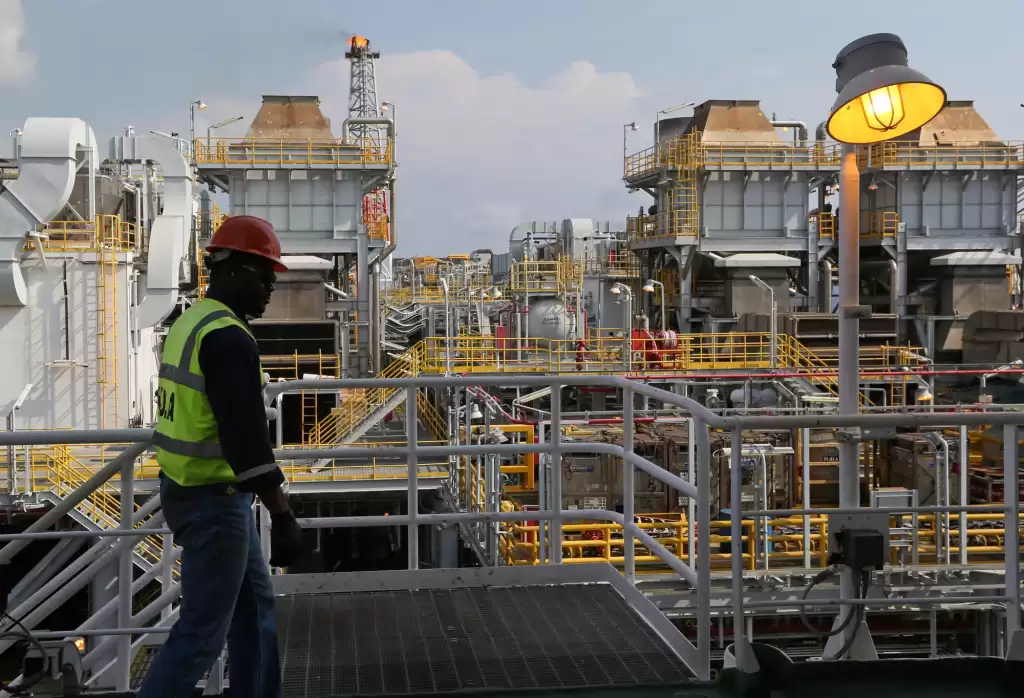Nigeria Must Increase Oil Production for Economic Diversification
The chairman of Heirs Holdings, Tony Elumelu, has emphasized the urgent need to boost Nigeria’s oil production to finance economic diversification and national development.
Speaking at the Nigeria Petroleum Industry Leadership Discourse in Abuja on Thursday, Elumelu highlighted the critical role of oil revenues in driving industrialization, enhancing energy security, and expanding infrastructure.
The event, themed “Nigeria’s Oil Production Growth Roadmap: Acceleration Imperatives”, was organized by Heirs Energies, a subsidiary of Heirs Holdings, to bring together industry leaders and policymakers to strategize on increasing crude oil output.
Balancing Oil Growth with Renewable Energy
Elumelu acknowledged the global shift towards renewable energy but emphasized that Africa’s immediate priority must be ensuring energy security.
🔹 Investment in oil and gas is crucial to power industries, support businesses, and provide electricity for households.
🔹 Oil revenues remain vital for funding Nigeria’s economic transformation.
Nigeria’s Oil Production: Progress and Challenges
While noting progress under President Bola Tinubu’s administration, Elumelu pointed out that Nigeria’s production still lags behind its OPEC quota.
“You know, under Buhari’s administration, production fell below 1 million barrels per day. We are pleased that under the current administration, output has risen to 1.8 million barrels per day. But we are not satisfied with that figure.”
Elumelu stressed:
✅ Nigeria must push beyond 2 million barrels per day to secure oil revenue for national development.
✅ Higher crude oil output would generate foreign exchange, stabilize the naira, and improve national security.
✅ Increased production will provide the financial resources needed for industrialization and infrastructure growth.
SEE ALSO: FG Directs NNPC to Sell Crude Oil to Dangote Refinery in Naira
The Impact on Power Generation

As Chairman of Transcorp Group, Elumelu revealed that Transcorp Power, one of Nigeria’s leading electricity producers, has a capacity of 2,000 megawatts but is unable to operate at full capacity due to gas supply shortages.
“We need greater collaboration between the government, industry stakeholders, and investors to achieve the country’s target of increasing oil production to 2.5 to 2.7 million barrels per day.”
Policy Reforms and Investor Confidence
Elumelu noted that recent policy reforms and executive orders signed by President Tinubu have significantly improved:
✅ Investor confidence in Nigeria’s oil sector
✅ Security measures for oil facilities
✅ Overall business climate for energy investments
Read also: Nigeria’s oil production now 1.75mbpd, as NUPRC targets additional 1mbpd by 2026
Heirs Energies’ Production Growth
Elumelu shared insights into Heirs Energies’ production expansion:
🔹 When OML 17 was acquired from Shell, production stood at 21,000 barrels per day.
🔹 Today, production has increased to 53,000 barrels per day, with a target of 100,000 barrels per day.
He expressed confidence that Nigeria can surpass the 2 million barrels per day threshold if stakeholders commit to:
✅ Expanding production capacity
✅ Improving infrastructure
✅ Securing oil facilities
Refining and Future Plans
On the question of refining, Elumelu stated that while Heirs Energies aims to integrate downstream operations in the future, its current focus remains on scaling up crude oil production.
“Once a company secures crude oil, the primary raw material, transitioning into refining, fertilizer production, and petrochemicals becomes more feasible.”
Conclusion
Elumelu’s call to increase oil production underscores the crucial role of the oil industry in funding Nigeria’s economic diversification. With strategic investments, policy reforms, and enhanced security, Nigeria has the potential to meet and exceed its OPEC quota, ensuring long-term economic stability and growth.
👉 What are your thoughts on Nigeria’s oil production goals? Share in the comments!



